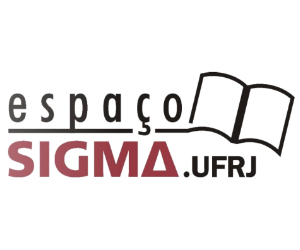It brings together studies in the range of Intellectual History and Ideas, which can unfold into other perspectives, from the History of Concepts, through the History of scientific culture, to the sociohistory of representations and cultural practices.
Thematic clusters
It encompasses studies that are focused on the history of cultural elaboration of production, reproduction and reinvention of identities and differences in different times and social contexts, with special attention to studies of ethnic, racial and gender relations. It includes analyzes of the formation of discourses in places of power such as science and religion. It highlights the historical processes of production of mainstream knowledge about ethnicity, race, gender, by adopting approaches that reveal the existence of representation struggles around the construction of social differences and the relationships between politics and knowledge in investing in the body (subject and object). Thus, this thematic cluster brings together research aimed at the study of historical forms of subjectivation in their themes and effects, in their contradictions, reconfigurations and counter-effects.
This thematic cluster brings together research that focus on the various historical forms of production and reproduction of ideas and intellectual culture. In a dialogue with cultural history, literary criticism and philosophy, these studies are dedicated to the social dynamics in which the conditions for the development of knowledge models occur, in different times and spaces. Scientific, intellectual and artistic works are thought through different perspectives, in order to account for the historicity of knowledge, concepts and categories that lend them meaning in their time.
It encompasses studies on the critique of the production of thought and historical knowledge, on the theoretical and practical dimensions of research, reading and writing operations, as well as the teaching practices and pedagogical routines of the discipline. The theory, philosophy, and writing of history are configured as questions connected to the diverse and plural means of production, circulation, and uses of historical knowledge in its varied forms and dimensions, with special attention to the transdisciplinary dialogue with archeology, the social sciences in general, education, philosophy, and the arts.
Different trajectories of the historiographic debate implied different agendas for research, institutionalization, and the teaching of History. This dimension is reflected in how history was marked by power practices crystallized around institutional cultures, and national or imperial traditions in this disciplinary field.
This thematic sector encompasses studies dedicated to the critique of the production of thought and historical knowledge, in the theoretical and practical dimensions of research, reading and writing operations, as well as the teaching practices and pedagogical routines of the discipline. The theory, philosophy, and writing of history are configured as problematic attentive to the diverse and plural means of production, circulation, and uses of historical knowledge in its varied forms and dimensions, with special attention to the transdisciplinary dialogue with archeology, the social sciences in general, education, philosophy, and the arts.
The studies included in this thematic cluster address certain topics of discussion on written culture, orality, rhetoric, and others, within the scope of the most diverse cultural practices prior to the literary paradigm of the late early modern period. Likewise, the current discourse regime allows us to think about the historicity of literary texts and the literalness of historical discourse; the ethical and epistemological dimensions of literature and arts, both plastic and scenic; the historical forms of the novel; and the moments of emergence and transformation of these narrative forms as they are known today.








